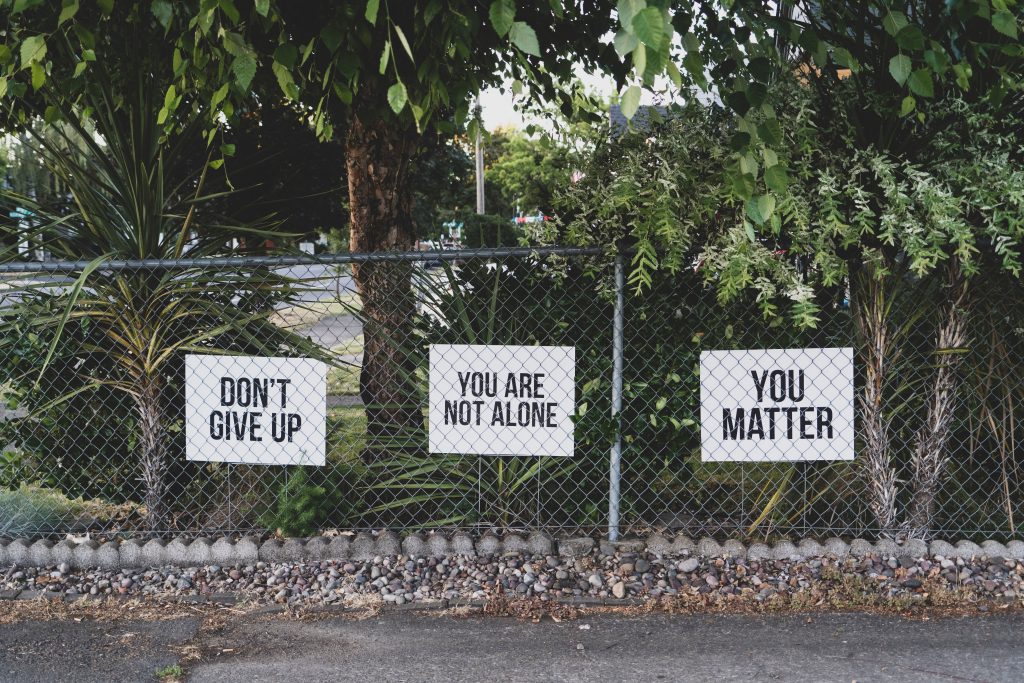Mental illnesses may seem like a rarity, but they are more common than you think, mainly because they are often invisible. They include, for example, depression, anxiety disorders, addiction or eating disorders. You might hold the door for someone in a wheelchair, but mental illnesses aren’t usually as visual. A mental illness can go hand in hand with a decreased quality of life. Daily life is more difficult for you and you can feel very little or no motivation to get up and do something. As a result, people withdraw and isolate themselves.
Mental illnesses have a huge impact on a person’s life, that’s a fact. But does this also mean that people with a mental illness can no longer do anything or that their lives come to a standstill? No, certainly not! You can be living with a mental illness, but still, have a good life. I’ll tell you how with these few tips.
Tip 1: Be aware of the three basic elements every day
Sleep, nutrition and exercise are the three basic elements of life. When one of these elements is out of balance, you’ll notice in both your physical and mental health. So, it’s important to make this a real priority in your life! Not used to paying a lot of attention to these three elements? Start with small steps; for example, go to bed around the same time every day and get up at the same time every day. Eat a healthy and varied meal three times a day, and make sure you go outside and take a walk every day (even if it’s only for 10 minutes!).
Tip 2: Stay in touch!
When you suffer from mental illness, you may tend to isolate and cut yourself off from your environment. You may feel that you are a burden to your environment, or think that you are protecting those around you by isolating yourself. But please know that the opposite is true! How would you feel if your close friend or family member was going through a rough time? Would you want your friend or brother to reach out to you, or would you rather have them withdraw and be alone? Companionship can bring you so much. Mental illness doesn’t go away the moment you talk about it with someone you trust, but it does relieve the pain. You feel heard and supported; that’s what it’s about.
It can also help to contact people that are also going through a mental illness. This helps you feel understood because you come into contact with people who are going through or have gone through the same thing as you. This makes you feel less alone.
Tip 3. Psycho-education
By reading psycho-education you gain more information about mental illness and the associated complaints. Try to read as much information as possible; the more you know, the better you understand yourself. Write down what your current complaints are and what you recognize from the information you read. On niceday.app you can find several libraries, where you can find and read information about several mental illnesses. Feel free to take a look there!
Tip 4. Avoid narcotics
A glass of wine or a joint before going to sleep; in the short term it might seem to ease the pain, but in the long term (or the next day) you will feel more miserable than ever. When it comes to drinking alcohol, the term “hangxiety” may sound familiar to you. With hangxiety, a combination of a hangover and anxiety, you not only suffer from nausea but you can also be overcome by fear, excessive worrying or even panic attacks. Alcohol and drugs can amplify existing psychological problems (and can cause them), so my advice is to stay away from them.
Tip 5. Get out of your head.
You have about 40,000 thoughts every day. Especially if you are someone who worries a lot, you probably notice that the thoughts keep piling up. This causes you to feel uneasy. Writing is a great way to get out of your head. Put your thoughts on paper and look at them from a distance. Writing ensures that you learn to look at your thoughts or situation from a different perspective, literally and figuratively. In addition, writing down your thoughts on paper or in an app helps you to put them down afterwards and to let go of your thoughts more easily.
Give these tips a try and observe the effect it has on you. It is important to give yourself some time to absorb all of the tips.
Psychological help
If you notice that these tips don’t help you and/or if you notice that your situation is deteriorating, please don’t hesitate to contact your doctor. They will make sure you get the help you need. Would you like to know more about a treatment via NiceDay? You can do this at several mental health care organisations, click here for more information.
Good luck!





